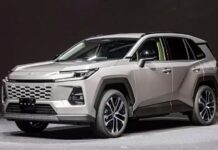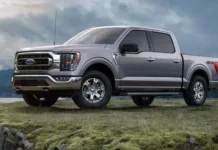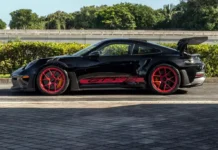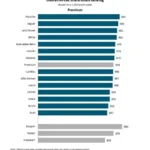Although the world has largely moved past the Covid-19 era, the automotive industry continues to grapple with its lingering effects, especially when it comes to reliability. Disruptions in supply chains, semiconductor chip shortages, and workforce turmoil from the pandemic’s peak persist in challenging automotive manufacturers. New research from J.D. Power reveals the extent of the impact on vehicle reliability.
The J.D. Power study analyzed 2022 model-year vehicles across the United States, measuring reliability based on the number of problems per 100 vehicles (PP100). The industry-wide average for American automotive reliability stands at 202 problems per 100 vehicles, representing a 6% decline in reliability compared to last year’s study of 2021 models.
According to J.D. Power, the number of reported problems in three-year-old vehicles in the US market has risen to its highest level since 2009.
**Most Reliable Car Brand in 2025**
As is often the case, some automakers performed better than the rest, and certain types of powertrains proved more dependable. With 33 fewer problems per 100 vehicles, battery-electric vehicles (BEVs) became the third most reliable type of powertrain, following hybrids (199 PP100) and gasoline engines (200 PP100). In contrast, plug-in hybrid electric vehicles (PHEVs) experienced the most issues, combining the drawbacks of both electric and hybrid cars.
The brands with the highest reliability were Lexus and Buick, with an average of 140 and 143 problems per 100 vehicles, respectively. Other automakers that performed better than the industry average (202 PP100) included Mazda, Toyota, Cadillac, Chevrolet, GMC, Porsche, BMW, Mini, Kia, and Honda.
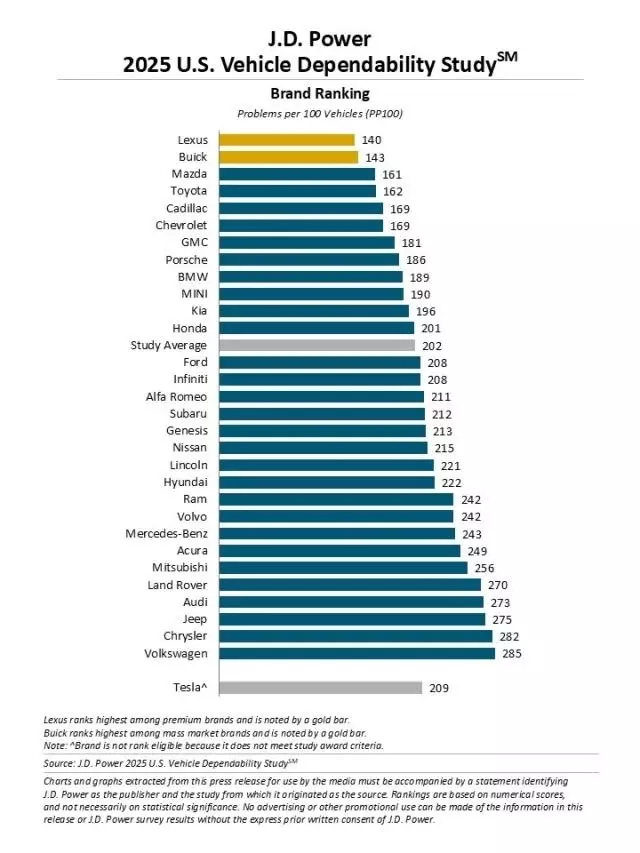
Lexus is the least problematic brand in the first three years of ownership.
On the flip side, several brands struggled with higher-than-average problem rates. Volkswagen was the least reliable brand with 285 PP100, followed by Chrysler (282 PP100), Jeep (275 PP100), Audi (273 PP100), and Land Rover (270 PP100). The British brand, Land Rover, seems unable to shake off its reputation for unreliability.
Meanwhile, the most dependable model in the J.D. Power study was the Toyota Avalon. Notably, out of the 27 new models introduced in 2022, only four had fewer problems than the segment average.
| Segment | Most Reliable Model |
| Overall Market | Toyota Avalon |
| Compact Car | Toyota Corolla |
| Compact Premium Car | BMW 3-Series |
| Midsize Car | Toyota Camry |
| Sporty Car | Chevrolet Corvette |
| Small SUV | Nissan Kicks |
| Compact SUV | Toyota RAV4 |
| Compact Premium SUV | Mercedes-Benz GLC |
| Midsize SUV | Nissan Murano |
| Midsize Premium SUV | Lexus GX |
| Midsize Crossover/SUV | GMC Acadia |
| Midsize Premium Crossover/SUV | Cadillac XT6 |
| Large SUV | Chevrolet Tahoe |
| Midsize Pickup | Toyota Tacoma |
| Large Light Duty Pickup | Chevrolet Silverado |
| Large Heavy Duty Pickup | Chevrolet Silverado HD |
| Minivan | Toyota Sienna |
The least problematic models in 2025 in the US market.
Despite the decline in automotive reliability, Jason Norton, automotive critique at J.D. Power, reminds consumers to view these results in context: “While this year’s increase in problems may be a hurdle for automakers and vehicle owners, it’s important to remember that three-year-old vehicles today were produced during a time of significant industry disruption.”
In other words, don’t expect a flawless experience from vehicles manufactured during a chaotic period for global imports and exports.
**Infotainment Systems Remain a Headache**
For the second consecutive year, connectivity issues with Android Auto and Apple CarPlay topped the list of consumer complaints. Problems related to these two connectivity features rose from 6.3 issues per 100 vehicles in 2023 to 8.4 issues per 100 vehicles this year.
Integrated Bluetooth (4.6 PP100) and Wi-Fi (2.4 PP100) issues were also among the top software-related problems. While software glitches accounted for only 9% of all issues experienced by vehicle owners, the risks become more critical as cars become increasingly dependent on software.
According to J.D. Power, half of the top ten issues in the automotive industry are related to smartphone integration, usage, or connectivity. Keeping up with the rapid evolution of smartphone technology is a challenge for the automotive sector. Over-the-air (OTA) software updates enable automakers to address outdated software. Thirty-six percent of vehicle owners performed an OTA update during the first three years of ownership. However, only 30% of them noticed improvements afterward, while 56% reported no significant changes.
J.D. Power also emphasizes that many 2022 model-year vehicles were produced during a time of severe supply chain disruptions and staff shortages. This could have contributed to the increased number of reported problems. This finding aligns with J.D. Power’s Initial Quality Study, which tracks early issues that arise during a vehicle’s lifespan and has also shown a downward trend in reliability.
The 2025 US Vehicle Dependability Study is based on responses from 34,175 original owners of 2022 model-year vehicles after three years of ownership. The study was conducted from August to November 2024.


